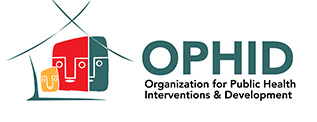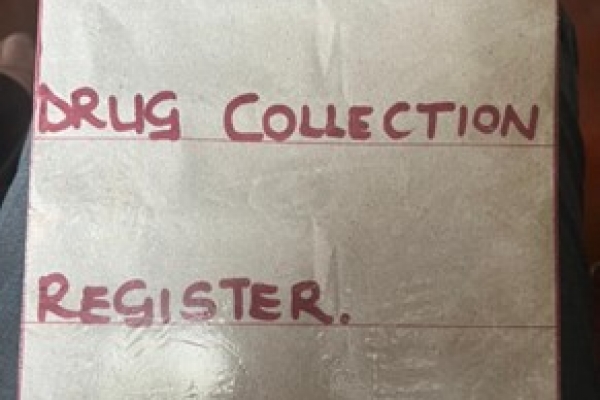With the support from the U.S. President’s Emergency Plan for AIDS Relief (PEPFAR) through USAID Zimbabwe, OPHID has collaborated with MOHCC to design and implement differentiated service delivery models that meet the needs of clients. The TASQC program has successfully introduced the Out of Facility Community ART Distribution (OFCAD) model in Chitungwiza District, bringing ART to the communities’ doorstep.
BACKGROUND: In Chitungwiza, the OFCAD model, as documented by MSF, was introduced in the peri-urban areas of Ziko and Nyatsime. Two OFCADs were developed to support clients from the catchment areas of Seke North clinic, Zengeza clinic and St Mary’s clinic. While eligible clients continue to enrol in this model, the Ziko OFCAD currently has 35 clients and Nyatsime has 34 clients. Community Outreach Agents with support from Community Health Nurse are responsible for enrolling clients and offering HIV care and treatment services. The COAs who manage the OFCAD’s have also been taught to use treatment literacy tools to counsel clients on the importance of adherence to their treatment.
The model supports clients from areas with poor access to transport. Clients overburdened by the time it takes to travel to the clinic and the cost of transport are more likely to default from their treatment, putting their health at risk. Nyatsime OFCAD point is situated about 7.5km from St Mary’s and 4km from Zengeza clinic with a poor road network. It also caters for clients from neighbouring farms, some which are 5Km away. Clients would have to pay $1 USD to $2USD to visit the facilities every 3 months to collect their medicines. This is significant for many households who survive on a $1USD a day. Often clients from these areas are informally employed surviving on vending and other part-time jobs. The fares required for transport also tend to increase during the rainy season due to flooding of the bridge which connects the Nyatsime area with Zengeza and St Mary’s areas.
“The roll-out of the model has seen clients getting their ART refills close-by and sometimes in their homes, especially for the elderly. With the constant support from our mobile CHSN, clients are assured of quality services which include VL sample collection and confirmation of HIVST reactive clients” says Community Outreach Agent - OPHID
The OFCAD leader (COA) offers comprehensive package of health services inclusive of Adherence Tracking on ART clients, Community Health Promotion, Community/ Facility linkage, Baby Weighing and MUAC screening (Nutrition), OVC collaboration in partnership with Mavambo Orphan care. Refill services are conducted in small groups with appointments scheduled once a week across the month for convenience and privacy. The OFCAD model has gained popularity among clients who feel supported without discrimination.
In addition to easing the burden of ART refills, the OFCAD model has helped to reach clients with services such as VIAC screening using HPV DNA self-screening, Viral load collection, TB screening, and TB preventive therapy. The COA has also helped clients who have experienced cases of gender-based violence and referred them for treatment and care.
“We really welcome this new initiative in Nyatsime of bringing the services closer, this has allowed us to access our ART medicine easily in addition to health education around treatment adherence – the demonstrations allowed me to understand better about Viral Load and why it’s important to take my medication daily, on time and as prescribed” –Nyatsime Client, Age 26, Female.
The model is contributing to a process of decongesting facilities and reducing the burden of work on nurses who are perennially short-staffed. By meeting the needs of clients, improving quality, and reducing the burden of care, OPHID believes that fewer clients will default, and more clients will be retained in care.
Through the TASQC program, OPHID and its partners have supported the MOHCC to expand and deliver differentiated service delivery models for clients who are stable on treatment, clients who live in remote areas, and even clients who live in the diaspora. Improved client-centred services will ensure more clients are retained and adhere to their treatment.


